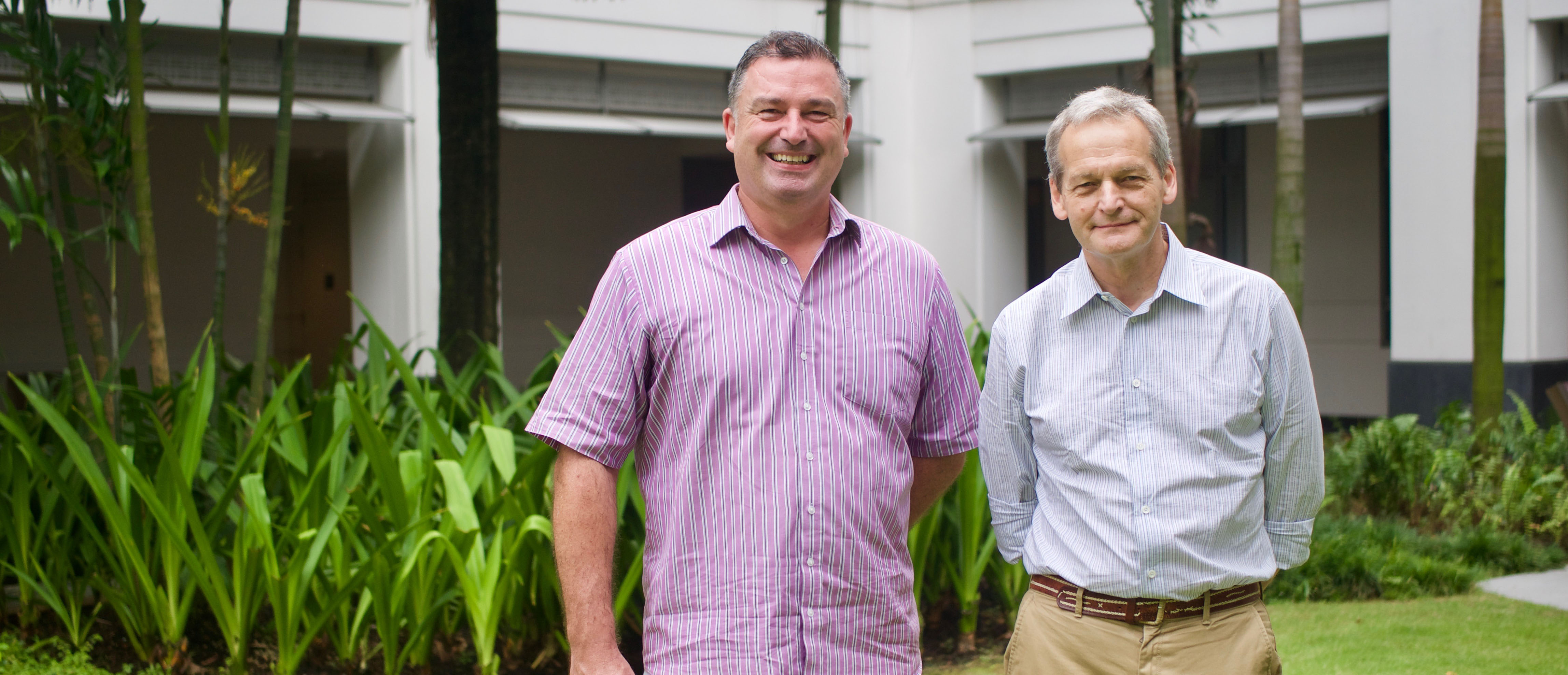New divisional directors to lead the Science and Social Sciences divisions

This academic year, two professors will assume the roles of Divisional Directors for the Science and Social Science Divisions. Professor Stephen Pointing, an environmental scientist, took over the baton from Professor Mark Bussell to helm the Science Division. Meanwhile, Visiting Professor John Driffill will be the Divisional Director of Social Sciences, taking over from Professor Jane M Jacobs, who has stepped down and is currently away on sabbatical.
Moving forward, both professors have exciting plans for their divisions. For Professor Driffill, who has been with the College since 2016, he is looking forward to even greater stability now that the College has moved past the initial stages of being set up.
“The College has grown from just an idea over the last four or five years; there have been many changes on the way, as student and faculty numbers have grown, practices have developed, and so on,” Professor Driffill shared.
“It seems like a time for consolidation; gradual refinements of procedures and practices as experience accumulates.”
On that note, Professor Driffill hopes to drive some of these refinements, such as advanced planning of the teaching programmes, improving the majors’ web pages to make them more informative, as well as striking a greater balance in terms of the multiple responsibilities of faculty members, such as their teaching commitments and research work.
Meanwhile, Professor Pointing shared that the subject areas that the Science Division offers are highly relevant to today’s technology-driven society.
“[Therefore,] my priority is to see that we produce graduates who become scientific leaders and innovators of the future. As we are currently on a strong growth trajectory, [another] priority is to ensure that we recruit and support faculty who can enthusiastically grow our curriculum and further our reputation for providing a learning experience that is highly student-centred,” Professor Pointing explained.
In the long run, Professor Pointing has a wide scope of plans that he wants to put in motion here, including an expansion in the diversity of courses offered to students across all science disciplines. In addition, he intends to promote the growth of experiential learning opportunities, including capstone projects, field trips, study abroad and other non-classroom activities.
Professor Pointing also wants to encourage and enhance the focus on science communication so that the College’s Science community is able to effectively communicate their research ideas, while further developing the College’s relationships with major innovators in the science and technology industry, and build closer ties that will benefit students, and the College’s research activity. To that end, Professor Pointing intends to further support growth in strategically important research themes and encourage greater research interaction with both Yale University and the National University of Singapore (NUS).
New to the College, Professor Pointing also shared that the most powerful motivator for him to join Yale-NUS College was the students.
“Our students are exceptional young people and my interaction with them highlighted the dynamic, exciting and demanding learning environment that both they and the faculty have created at the College. I believe the liberal arts model offers really exciting opportunities for science learning that is relevant to today’s career opportunities for young people, and so bringing my research here was also something I felt extremely comfortable about.”
Professor Pointing also stressed that the strong heritage that the College enjoys from Yale and NUS, and the strong commitment that Singapore has made to science and technology, coupled with its vibrant multicultural society were compelling factors for his move to Singapore and Yale-NUS.
Both Divisional Directors are looking forward to working with each other and Professor Rajeev Patke, Divisional Director of Humanities. Each noted the interdisciplinary nature of the Yale-NUS curriculum, which will provide multiple opportunities for the three divisions to work in synergy.
“The divisions are not separate; there are many intersections. The Divisional Directors meet frequently in several different meetings. I imagine we’ll all work together harmoniously and collaboratively,” Professor Driffill shared.
Professor Driffill is here with his wife, Naoko Shimazu, Professor of Humanities and Head of Studies of History. He hopes to explore the region further and to get more exercise into his lifestyle. Professor Driffill also hopes to attend more live concerts locally.
Meanwhile, Professor Pointing moved to Singapore from New Zealand together with his wife and their 12-year-old son.
On how they have been settling in thus far, Professor Pointing shared, “Singapore is very different from New Zealand in so many ways but my family and I are really enjoying our new home. My wife is from Hong Kong and she loves life here, a strong endorsement given the rivalry between these two Asian cities.”





